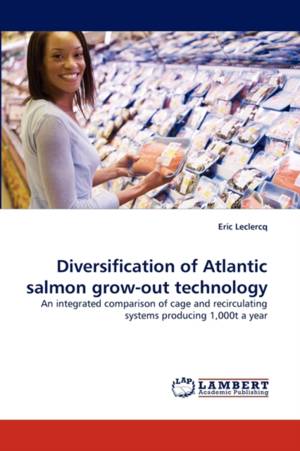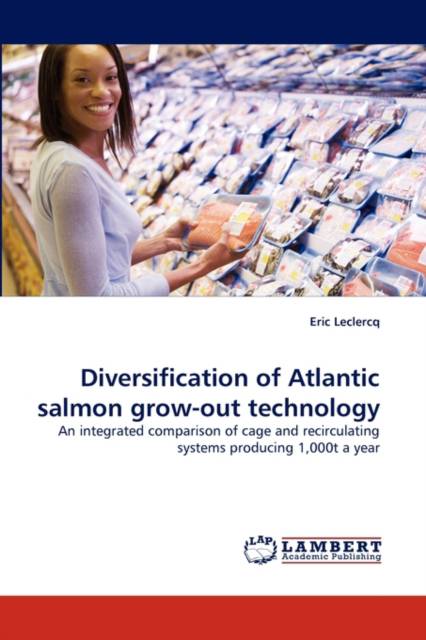
Je cadeautjes zeker op tijd in huis hebben voor de feestdagen? Kom langs in onze winkels en vind het perfecte geschenk!
- Afhalen na 1 uur in een winkel met voorraad
- Gratis thuislevering in België vanaf € 30
- Ruim aanbod met 7 miljoen producten
Je cadeautjes zeker op tijd in huis hebben voor de feestdagen? Kom langs in onze winkels en vind het perfecte geschenk!
- Afhalen na 1 uur in een winkel met voorraad
- Gratis thuislevering in België vanaf € 30
- Ruim aanbod met 7 miljoen producten
Zoeken
Diversification of Atlantic salmon grow-out technology
An integrated comparison of cage and recirculating systems producing 1,000t a year
Eric Leclercq
Paperback | Engels
€ 70,45
+ 140 punten
Omschrijving
The Scottish salmon industry has grown incredibly in the last decade to produce over 145,000t in 2002. This on-going success relies largely on the relative ease of cage farming in sheltered seawater bodies. Despite continuous improvements at all level of the farming process, increasing awareness of environmental interactions by legislative bodies and consumers alike warrant the for a diversification of the production systems if the sector's growth is to be maintained. This study compares two alternative farming systems scaled to produce 1,000t/year of harvest-size Atlantic salmon: a cage-system located within an exposed marine site and a land-based recirculating system. Despite its high capital cost, the recirculating system has the potential to be more competitive if it obtains a premium sale price above 15%, which seems feasible. This study includes a financial, environmental, risk and sensitivity analysis providing an integrated perspective into the salmon farming industry. This work is expected to be welcomed by developers, investors and legislators and by anyone searching for a bird's eye view on the Atlantic salmon farming sector.
Specificaties
Betrokkenen
- Auteur(s):
- Uitgeverij:
Inhoud
- Aantal bladzijden:
- 92
- Taal:
- Engels
Eigenschappen
- Productcode (EAN):
- 9783844324426
- Verschijningsdatum:
- 10/04/2011
- Uitvoering:
- Paperback
- Afmetingen:
- 152 mm x 229 mm
- Gewicht:
- 145 g

Alleen bij Standaard Boekhandel
+ 140 punten op je klantenkaart van Standaard Boekhandel
Beoordelingen
We publiceren alleen reviews die voldoen aan de voorwaarden voor reviews. Bekijk onze voorwaarden voor reviews.









